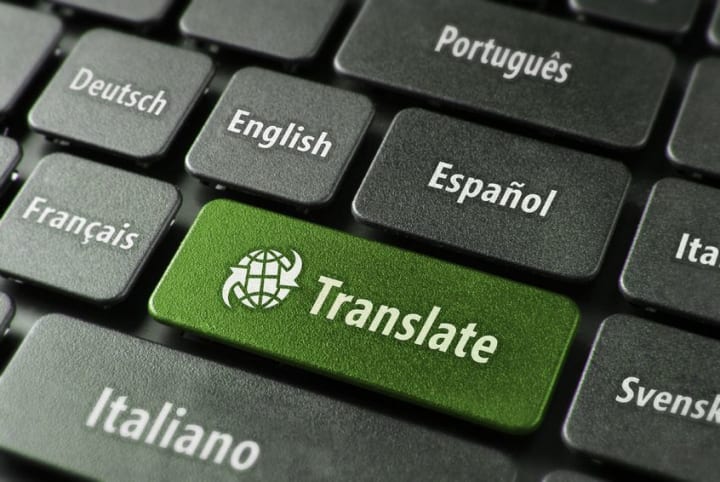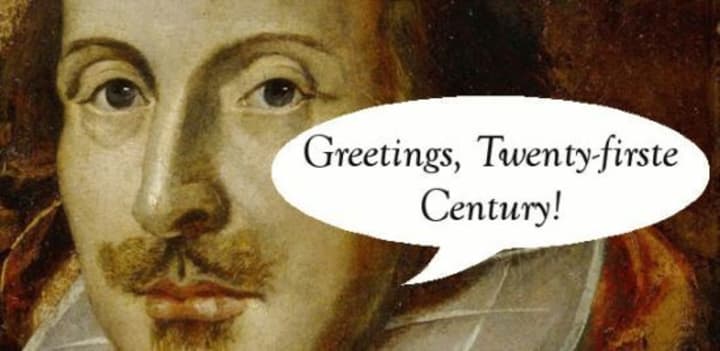Illiterature: Uncultured Readers or Merely Born in a New Era?
The language barrier of reading the classics and why readers shouldn't feel uncultured for falling asleep!

Do you ever open a book of classic literature, something renowned in the literary canon, and feel your jaw slowly sag...your eyes start pacing...and your mind begin spinning in circles as though you are suddenly reading a different language? Okay, maybe not that extreme, but it's confusing, right: the way older literature is written? Nowadays, you can read The Hunger Games,Harry Potter, or Divergent and follow every word!

Shakespeare, on the other hand...what is that dude talking about? And does Alexandre Dumas ever end a sentence in his The Count of Monte Cristo? And are we still talking about whale blubber in Herman Melville's Moby Dick?
You don't need to feel illiterate when reading old literature. And you don't need to feel uncultured if you don't like drudging through the stacks upon stacks of fancy wording. I'll let you in on a little secret: fancy wording is the only thing keeping you from enjoying the excellent writing of these classics (unless you're just not a fan of reading about whale blubber...but who isn't?).
Though I could lose my literary nerd badge for this, there is one main, passable difference between modern novels and classic novels (I'm not comparing quality here, because I would definitely not put every single book in this world on the same written quality level!). The difference I'm talking about is a language barrier, due to the cultures and centuries separating us from these classic authors.
As a clever individual once said, "How do we find a needle in a haystack? We bring a magnet." So how do we cross this barrier from modern literature into the classic literary canon? We bring a dictionary!
"So this IS in English!"

Let's do a little test. Here's an excerpt from Shakespeare's Much Ado About Nothing:
"Some Cupid kills with arrows, some with traps."
Even out of context, do you think you can deduce Shakespeare's meaning here?
The female lead's cousin Hero says this in the play, regarding her association with a plot to set Beatrice up romantically with Benedick.
If it didn't make sense before, does it now?
Well, you see, Cupid is a supernatural being with wings and a bow that fires arrows of love. However, with the characters in this story taking matters into their own hands, they're claiming Cupid doesn't have to always use his bow to get people together; he can lure them into a trap where they're thrown into a situation that makes them fall in love!
Did you pass? Be honest with me; how hard was it?
Let's Try Something a Little Harder...

Sticking with Shakespeare's writing, let's take a look at Hamlet, where the following statement is made:
"So full of artless jealousy is guilt,
It spills itself in fearing to be spilt."
Take it apart piece by piece here. "So full"...okay..."of artless jealousy." What do you see when you hear "artless jealousy?" I see something not pretty, hence "artless," and not smooth. Jealousy is ugly anyway, and a pretty straightforward state of mind! So "guilt" is the thing "so full of artless jealousy." That's an interesting statement: that when guilt and jealousy are combined, the jealousy is made artless. This makes sense, because you're much worse at concealing your jealousy when you feel guilty about the emotion and the actions you've taken in response to it.
Alright, next line: "It spills itself." Okay, the guilt is spilling itself, which leads back to my statement about it being difficult to conceal. The beans are about to be spilled..."in fearing to be spilt." So you're so worried you're going to blow it and blurt out the secret that you end up doing the one thing you were so afraid of doing!
'May I call you Bill, Mr. Shakespeare?'

Does that Hamlet quote look so intimidating now? Does Shakespeare?
Anything can be taken apart, especially when given enough context clues and translated to our modern understanding of language!
That leads me to my other point; you don't have to read classic literature for enjoyment! Worrying about whether other people think you're intelligent or accomplished is overrated anyway. Read it if you want to, or if there is some other benefit to doing so! I read it because I enjoy examining the foundation of literary progression throughout the centuries, and, really, there are such adventures to be had and witticisms to enjoy in classic works!
But I often have to pause to translate what I just read, so don't feel bad if you have to do the same! We're in the twenty-first century, and there is no reason to be ashamed of it. But that doesn't mean you can't visit earlier centuries now and then!
Thanks so much for reading!
About the Creator
Journey Scribe
Hey, everyone! My name's Jessica, and I am a Christian and aspiring novelist just trying my hand at writing articles! Thanks so much for viewing my page/works on here!






Comments
There are no comments for this story
Be the first to respond and start the conversation.